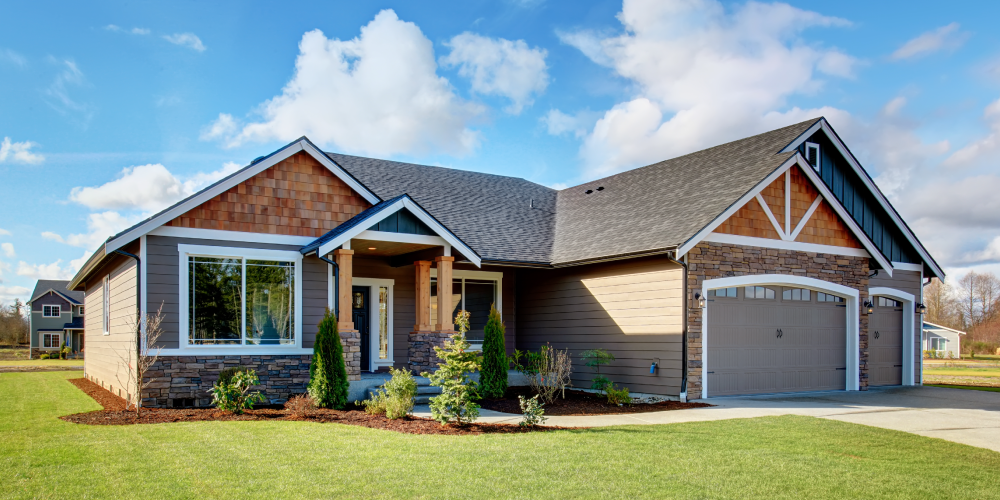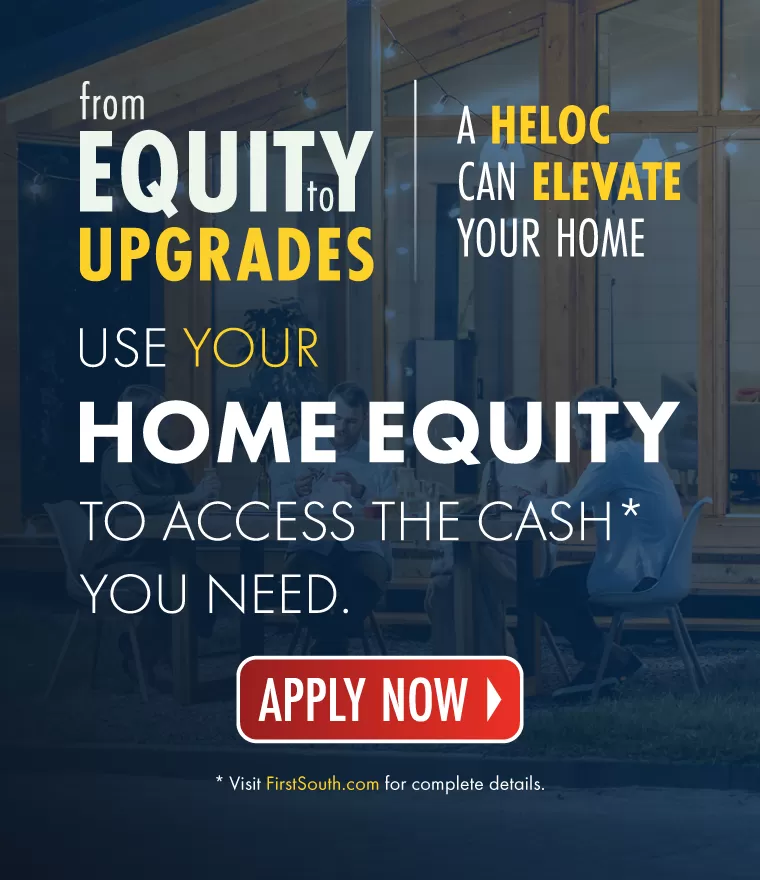How Much House Can I Afford?

Buying a home is one of the most exciting and meaningful steps you can take—but it's also one of the most expensive. Whether you're a first-time buyer or thinking about upgrading, determining how much house you can realistically afford is key to long-term financial stability.
At First South Financial, we believe that smart financial decisions start with solid information. Here’s a comprehensive guide to help you set your homebuying budget—and stick to it.
1. Start with the 28/36 Rule
Lenders often use the 28/36 rule to evaluate what’s affordable for borrowers. You can use the same rule to set your homebuying boundaries.
- 28% of your gross monthly income (before taxes) should go toward housing expenses. This includes:
o Mortgage principal and interest
o Property taxes
o Homeowners Insurance
o Homeowners Association (HOA) fees (if applicable)
- 36% of your gross monthly income should cover all debts, including:
o Housing costs (as above)
o Student loans
o Auto loans
o Credit cards
o Personal loans
Example:
If you earn $75,000 a year ($6,250/month), then:
- 28% = $1,750 (your maximum monthly housing budget)
- 36% = $2,250 (your maximum total debt payments per month)
Sticking within these limits ensures your home is a blessing—not a financial burden.
2. Factor in Your Down Payment
Your down payment directly affects how much you’ll need to borrow and how affordable your monthly payments will be.
Common Down Payment Options:
- 20% Down: Avoids private mortgage insurance (PMI), gives you a lower loan-to-value ratio, and often helps secure the best interest rates.
- 10% Down: More achievable for many buyers, but will likely require PMI.
- 3%–5% Down: Available through programs like FHA, USDA, or first-time homebuyer assistance—but you’ll have higher monthly costs and insurance requirements.
Consider:
- How long will it take you to save a sufficient down payment?
- Will you have funds left over for closing costs, moving, and furnishing?
- Are there local or state down payment assistance programs available?
First South Tip: Our goal-based savings options, like the Build-It CD, can help you save faster and smarter for your home purchase.
3. Know Your Credit and Get Prequalified
Before falling in love with a home, it’s essential to know your credit situation. Your credit score has a direct impact on the loan terms you’ll receive—including your interest rate, monthly payment, and even how much you can borrow.
Steps to Take:
- Check Your Credit: You can get a free report at AnnualCreditReport.com. Review for errors and areas for improvement.
- Pay Down Debts: Lowering your credit utilization and paying off loans can raise your score quickly.
- Avoid New Credit Applications: Hold off on opening new accounts during the mortgage application process.
Once you’ve reviewed your credit:
- Get Prequalified: A quick estimate based on your income, assets, and credit.
- Get Preapproved: A stronger commitment from a lender, often required by sellers.
First South Tip: We offer free credit reviews and personalized mortgage prequalification to help you understand your buying power before you shop.
4. Consider All Monthly Housing Costs
Your mortgage payment is just the beginning. Owning a home comes with a variety of monthly expenses that must be factored into your budget.
Key Expenses to Include:
- Mortgage Principal & Interest
- Property Taxes: These vary by location and may change annually.
- Homeowners Insurance: Required by lenders and can vary based on home size and location.
- PMI: Required if your down payment is below 20%.
- HOA Fees: If your home is in a managed community or condo.
- Utilities & Maintenance: Includes water, electricity, internet, and ongoing upkeep like HVAC, roofing, landscaping, etc.
When budgeting, be conservative. Buying a home that pushes your monthly costs to the edge of your budget can leave you financially vulnerable.
First South Tip: Our lending team can help you estimate all housing-related costs before you commit.
5. Don’t Forget Your Lifestyle and Long-Term Goals
A home should support your life—not limit it. Before finalizing your price range, ask yourself:
- Do you want to travel frequently or work remotely?
- Are you planning to start a family?
- Would you rather invest more in your home or your retirement account?
- Will a higher mortgage limit your ability to save or enjoy life?
Just because you can get approved for a higher amount doesn’t mean you should spend that much. Many homeowners later regret buying at the top of their budget.
First South Tip: We recommend aiming for a home that’s below your maximum approved amount. This gives you room for flexibility, emergencies, and financial growth.
6. Use a Home Affordability Calculator
Still unsure what price range is realistic for you? Try our Home Affordability Calculator to input your income, debts, and down payment to get an accurate estimate.
Click here to access our calculator
This tool gives you a clear, personalized view of what’s affordable—and can help you avoid falling for a home that’s beyond your reach.
Final Thoughts: We’re Here to Help You Every Step of the Way
Buying a home is a big deal—but it doesn’t have to be overwhelming. At First South Financial, we offer:
- Competitive fixed and adjustable-rate mortgages
- First-time homebuyer programs
- Local loan officers for personalized support
- Free educational tools and calculators
Whether you’re just beginning to think about buying or already preapproved, we’re here to guide you with expert advice and member-first service.
Ready to get started?
Visit FirstSouth.com/Mortgage, call us at 901-380-7530 or send an email to mortgages@firstsouth.com.
Have questions about which mortgage is right for you? Our team of mortgage professionals are here to help you!
Let’s find the right home—and the right payment—together.
« Return to "Friends & Finances" Go to main navigation






